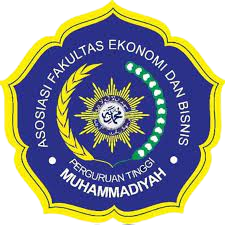The Role of Performance Political Stability and Macroeconomic Attracting Foreign Direct Investment in ASEAN
DOI:
https://doi.org/10.24269/ekuilibrium.v19i1.2024.pp107-121Abstract
Foreign direct investment (FDI) plays a crucial role in developing nations to raise the standard of living for their citizens and strengthen their economies. This research aims to investigate the effects of macroeconomic factors like GDP, inflation, and female employment in the industry on flows of foreign direct investment as well as factor political stability with a research focus on 5 ASEAN countries (Indonesia, Malaysia, Vietnam, Laos, Cambodia) with research 20 years. The research method used panel data regression with secondary data from the World Bank. The Fixed Effect Model is found to be the best model selection. The results showed that political stability variables as well as all macroeconomic fundamental variables as measured by GDP, Inflation, and Employment Females in Industry partially had a significant and positive effect on the inflow of Foreign direct investment in 5 ASEAN countries and simultaneously had a significant positive effect.
References
Agudze, K., & Ibhagui, O. (2021). Inflation and FDI in industrialized and developing economies. International Review of Applied Economics, 35(5), 749–764. https://doi.org/10.1080/02692171.2020.1853683
Agustin, E. B., Muljaningsih, S., & Asmara, K. (2021). Analisis Faktor-Faktor Yang Mempengaruhi Foreign Direct Investment (Fdi) Di Singapura Tahun 2004-2019. Equilibrium : Jurnal Ilmiah Ekonomi, Manajemen Dan Akuntansi, 10(2), 105–112. https://doi.org/10.35906/je001.v10i2.778
Akin, T. (2019). The effects of political stability on foreign direct investment in fragile five countries. Central European Journal of Economic Modelling and Econometrics, 2019(4), 237–255. https://doi.org/10.24425/cejeme.2019.131539
Ashurov, S., Abdullah Othman, A. H., Rosman, R. Bin, & Haron, R. Bin. (2020). The determinants of foreign direct investment in Central Asian region: A case study of Tajikistan, Kazakhstan, Kyrgyzstan, Turkmenistan and Uzbekistan (A quantitative analysis using GMM). Russian Journal of Economics, 6(2), 162–176. https://doi.org/10.32609/J.RUJE.6.48556
Badriah, L. S., & Istiqomah, I. (2022). Does Gender Inequality Lead to Income Inequality? Evidence From Indonesia. Ekuilibrium : Jurnal Ilmiah Bidang Ilmu Ekonomi, 17(1), 1. https://doi.org/10.24269/ekuilibrium.v17i1.4003
Baloch, M. A., Zhang, J., Iqbal, K., & Iqbal, Z. (2019). The effect of financial development on ecological footprint in BRI countries: evidence from panel data estimation. Environmental Science and Pollution Research, 26(6), 6199–6208. https://doi.org/10.1007/s11356-018-3992-9
Bitar, N., Hamadeh, M., & Khoueiri, R. (2019). Impact of Political Instability on Foreign Direct Investment in Lebanon. Asian Social Science, 16(1), 41. https://doi.org/10.5539/ass.v16n1p41
Brueckner, M., Dabla-Norris, E., Gradstein, M., & Lederman, D. (2018). The rise of the middle class and economic growth in ASEAN. Journal of Asian Economics, 56. https://doi.org/10.1016/j.asieco.2017.12.008
Crescenzi, R., Di Cataldo, M., & Giua, M. (2021). FDI inflows in Europe: Does investment promotion work? Journal of International Economics, 132(June). https://doi.org/10.1016/j.jinteco.2021.103497
Cung Huu NGUYEN. (2021). Labor Force and Foreign Direct Investment: Empirical Evidence from Vietnam. Journal of Asian Finance, Economics and Business. Journal of Asian Finance Economics and Business, 8 (1), 103–112. https://doi.org/10.13106/jafeb.2021.vol8.no1.103
Dabrowski, M. (2019). Factors determining Russia’s long-term growth rate. Russian Journal of Economics, 5(4), 328–353. https://doi.org/10.32609/j.ruje.5.49417
Demina, Y. A. (2022). EAEU and ASEAN: Reasons for differences in FDI inflows with similar integration models. RUDN Journal of Economics, 30(4), 449–466. https://doi.org/10.22363/2313-2329-2022-30-4-449-466
Dinh, T. T.-H., Vo, D. H., The Vo, A., & Nguyen, T. C. (2019). Foreign Direct Investment and Economic Growth in the Short Run and Long Run: Empirical Evidence from Developing Countries. Journal of Risk and Financial Management, 12(4), 176. https://doi.org/10.3390/jrfm12040176
Erkekoglu, H. (2016). 6. Do political risks affect the foreign direct investment inflows to host countries. Pressacademia, 5(2), 218–218. https://doi.org/10.17261/pressacademia.2016219263
Erum, N., Hussain, S., & Yousaf, A. (2016). Foreign Direct Investment and Economic Growth in SAARC Countries. The Journal of Asian Finance, Economics and Business, 3(4), 57–66. https://doi.org/10.13106/jafeb.2016.vol3.no4.57
Ezeji E, C., Chijindu Promise, U., & Uzoamaka S, C. (2015). Impact of Capital Inflows on Economic Growth of Developing Countries. The International Journal of Management Science and Business Administration, 1(7), 7–21. https://doi.org/10.18775/ijmsba.1849-5664-5419.2014.17.1001
Fajar Nurbani Aslam, & Ari Rudatin. (2023). Analisis determinan aliran Foreign Direct Investment (FDI) di kawasan ASEAN. Jurnal Kebijakan Ekonomi Dan Keuangan, 1(2), 205–211. https://doi.org/10.20885/jkek.vol1.iss2.art7
Hoang, H. H., & Bui, D. H. (2015). Determinants of foreign direct investment in ASEAN: A panel approach. Management Science Letters, 5(2), 213–222. https://doi.org/10.5267/j.msl.2014.12.015
Hussain, M. E., & Haque, M. (2016). Foreign direct investment, trade, and economic growth: An empirical analysis of bangladesh. Economies, 4(2), 1–14. https://doi.org/10.3390/economies4020007
Jaiblai, P., & Shenai, V. (2019). The determinants of FDI in sub-Saharan economies: A study of data from 1990–2017. International Journal of Financial Studies, 7(3). https://doi.org/10.3390/ijfs7030043
KadiÅ¡a, T., Butkus, M., & AleksandraviÄienÄ—, A. (2021). Effect of Foreign Direct Investment on Growth-Unemployment Nexus. Socialiniai Tyrimai, 44(2), 139–152. https://doi.org/10.15388/soctyr.44.2.9
Khushnood, E., Channa, Z. H., Bhutto, M., & Ali Erri, M. (2020). Impact of Good Governance Indicators on the Inflow of Foreign Direct Investment (FDI) In Pakistan. NICE Research Journal, 13(2), 69–83. https://doi.org/10.51239/nrjss.v0i0.175
Kirana, Y. S. (2022). Pengaruh Produk Domestik Bruto dan Ekspor Terhadap Foreign Direct Investment di Indonesia, Thailand, dan Vietnam. Jurnal Ekonomi Aktual, 2(2), 73–78. https://doi.org/10.53867/jea.v2i2.51
Kurul, Z., & Yasemin Yalta, A. (2017). Relationship between institutional factors and FDI flows in developing countries: New evidence from dynamic panel estimation. Economies, 5(2). https://doi.org/10.3390/economies5020017
Li, W., Nie, G., & Wang, Z. (2020). Trade, FDI, and Global Imbalances. Journal of International Money and Finance, 105(February). https://doi.org/10.1016/j.jimonfin.2020.102188
Manan, S. A., & Aisyah, S. (2023). Pengaruh Produk Domestik Bruto, Tingkat Suku Bunga, Inflasi, dan Pertumbuhan Ekonomi terhadap Foreign Direct Investment di Asean. Ekonomis: Journal of Economics and Business, 7(1), 159. https://doi.org/10.33087/ekonomis.v7i1.764
Marsh. (2019). Politcal Risk Map 2019: Rising geopolitical tensions. Marsh & McLennan Companies, February. https://bit.ly/3iTWlSd
Mohamed, E. A. (2019). The impact of political reform on the stability of the state of Kuwait since 2010. Journal of Humanities and Applied Social Sciences, 2(2), 101–114. https://doi.org/10.1108/jhass-06-2019-0001
Nasir, M. A., Duc Huynh, T. L., & Xuan Tram, H. T. (2019). Role of financial development, economic growth & foreign direct investment in driving climate change: A case of emerging ASEAN. Journal of Environmental Management, 242, 131–141. https://doi.org/10.1016/j.jenvman.2019.03.112
Ngo, M. N., Cao, H. H., Nguyen, L. N., & Nguyen, T. N. (2020). Determinants of foreign direct investment: Evidence from Vietnam. Journal of Asian Finance, Economics and Business, 7(6), 173–183. https://doi.org/10.13106/JAFEB.2020.VOL7.NO6.173
Nguyen, H. H. (2020). Impact of foreign direct investment and international trade on economic growth: Empirical Study in Vietnam. Journal of Asian Finance, Economics and Business, 7(3), 323–331. https://doi.org/10.13106/jafeb.2020.vol7.no3.323
Noviani, I. D., & Istifadah, N. (2020). Analisis Pengaruh Tenaga Kerja dan Pengeluaran Pemerintah (Infrastruktur) terhadap Investasi di Indonesia. Media Trend, 15(2), 283–290. https://doi.org/10.21107/mediatrend.v15i2.6703
Omodero, C. O. (2019). Effect of Corruption on Foreign Direct Investment Inflows in Nigeria. Studia Universitatis Vasile Goldis Arad, Economics Series, 29(2), 54–66. https://doi.org/10.2478/sues-2019-0008
Paul, S. C., Rosid, M. H. O., Xuefeng, Z., & Islam, M. R. (2021). The macroeconomic determinants of cross-country FDI flows: A comparative analysis through the driscoll-kraay, 2SLS and GMM models. Asian Economic and Financial Review, 11(2), 129–140. https://doi.org/10.18488/JOURNAL.AEFR.2021.112.129.140
Piketty, T., Saez, E., & Zucman, G. (2018). Distributional National Accounts: Methods and Estimates for the United States*. The Quarterly Journal of Economics, 133. https://doi.org/10.1093/qje/qjx043
Putri, N. K., Komara, K., & Setyowati, T. (2021). Pengaruh Nilai Tukar, Pertumbuhan Ekonomi, Inflasi, dan Suku Bunga terhadap Investasi Asing Langsung di Indonesia. Jkbm (Jurnal Konsep Bisnis Dan Manajemen), 8(1), 11–25. https://doi.org/10.31289/jkbm.v8i1.5422
Rahim, D. A. (2023). Reviewing the Role of Investment in the West Kalimantan Border. Ekuilibrium : Jurnal Ilmiah Bidang Ilmu Ekonomi, 18(1), 83–93. https://doi.org/10.24269/ekuilibrium.v18i1.2023.pp83-93
Rashid, M., Looi, X. H., & Wong, S. J. (2017). Political stability and FDI in the most competitive Asia Pacific countries. Journal of Financial Economic Policy, 9(2), 140–155. https://doi.org/10.1108/JFEP-03-2016-0022
Sabir, S., Rafique, A., & Abbas, K. (2019). Institutions and FDI: evidence from developed and developing countries. Financial Innovation, 5(1). https://doi.org/10.1186/s40854-019-0123-7
Sahu, J. (2020). Does inflow of foreign direct investment stimulate economic growth? Evidence from developing countries. Transnational Corporations Review, 13, 1–18. https://doi.org/10.1080/19186444.2020.1833603
Sajilan, S., Islam, M. U., Ali, M., & Anwar, U. (2019). The determinants of FDI in OIC countries. International Journal of Financial Research, 10(5), 466–473. https://doi.org/10.5430/ijfr.v10n5p466
Salem, R., & Younis, R. (2021). The Effect of country risk on foreign direct investment: Evidence from Egypt. المجلة العلمیة للإقتصاد و التجارة, 51(2), 243–276. https://doi.org/10.21608/jsec.2021.154167
Sayari, N., Sari, R., & Hammoudeh, S. (2018). The impact of value added components of GDP and FDI on economic freedom in Europe. Economic Systems, 42(2), 282–294. https://doi.org/https://doi.org/10.1016/j.ecosys.2017.03.003
Sengupta, P., & Puri, R. (2018). Exploration of Relationship between FDI and GDP: A Comparison between India and Its Neighbouring Countries. Global Business Review, 21(2), 473–489. https://doi.org/10.1177/0972150918760026
Shaari, M. S., Asbullah, M. H., Zainol Abidin, N., Karim, Z. A., & Nangle, B. (2023). Determinants of Foreign Direct Investment in ASEAN+3 Countries: The Role of Environmental Degradation. International Journal of Environmental Research and Public Health, 20(3). https://doi.org/10.3390/ijerph20031720
Sunaryo, R. P., & Nurhayati. (2023). Analisis Tax Holiday Dan Fundamental Perekonomian Negara Terhadap Foreign Direct Investment (Fdi) Di Asean-9. Media Ekonomi, 30(2), 1–20. https://doi.org/10.25105/me.v30i2.15764
Ta, V. L., Le, Q. H., Nguyen, T. L. H., Phan, T. T., & Do, A. D. (2020). Investigating foreign direct investment attractive factors of korean direct investment into Vietnam. Journal of Asian Finance, Economics and Business, 7(6), 117–125. https://doi.org/10.13106/JAFEB.2020.VOL7.NO6.117
Uddin, M., Chowdhury, A., Zafar, S., Shafique, S., & Liu, J. (2019). Institutional determinants of inward FDI: Evidence from Pakistan. International Business Review, 28(2), 344–358. https://doi.org/10.1016/j.ibusrev.2018.10.006
Viva budy. (2022). Inflasi Laos Tertinggi di ASEAN. Databoks, 2022.
Xaypanya, P., & Rangkakulnuwat, S. W. (2015). 2/3/2559 Scopus  Print Document. 2559. https://doi.org/10.1108/IJSE
Zuhroh, I., & Harpiyansa, H. (2022). Global Crisis and Economic Fundamentals: Its Impact on Foreign Direct Investment in ASEAN Countries. Ekuilibrium : Jurnal Ilmiah Bidang Ilmu Ekonomi, 17(1), 91. https://doi.org/10.24269/ekuilibrium.v17i1.4549
Downloads
Published
How to Cite
Issue
Section
License
Retained Rights/Terms and Conditions of Publication
1. As an author you (or your employer or institution) may do the following:
- make copies (print or electronic) of the article for your own personal use, including for your own classroom teaching use;
- make copies and distribute such copies (including through e-mail) of the article to research colleagues, for the personal use by such colleagues (but not commercially or systematically, e.g. via an e-mail list or list server);
- present the article at a meeting or conference and to distribute copies of the article to the delegates attending such meeting;
- for your employer, if the article is a ‘work for hire’, made within the scope of your employment, your employer may use all or part of the information in the article for other intra-company use (e.g. training);
- retain patent and trademark rights and rights to any process, procedure, or article of manufacture described in the article;
- include the article in full or in part in a thesis or dissertation (provided that this is not to be published commercially);
- use the article or any part thereof in a printed compilation of your works, such as collected writings or lecture notes (subsequent to publication of the article in the journal); and prepare other derivative works, to extend the article into book-length form, or to otherwise re-use portions or excerpts in other works, with full acknowledgement of its original publication in the journal;
- may reproduce or authorize others to reproduce the article, material extracted from the article, or derivative works for the author's personal use or for company use, provided that the source and the copyright notice are indicated, the copies are not used in any way that implies RCEPM-LIPI endorsement of a product or service of any employer, and the copies themselves are not offered for sale.
All copies, print or electronic, or other use of the paper or article must include the appropriate bibliographic citation for the article's publication in the journal.
2. Requests from third parties
Although authors are permitted to re-use all or portions of the article in other works, this does not include granting third-party requests for reprinting, republishing, or other types of re-use. Requests for all uses not included above, including the authorization of third parties to reproduce or otherwise use all or part of the article.
3. Author Online Use
- Personal Servers. Authors and/or their employers shall have the right to post the accepted version of articles pre-print version of the article, or revised personal version of the final text of the article (to reflect changes made in the peer review and editing process) on their own personal servers or the servers of their institutions or employers without permission from Universitas Muhamamdiyah Ponorogo, provided that the posted version includes a prominently displayed Universitas Muhamamdiyah Ponorogo copyright notice and, when published, a full citation to the original publication, including a link to the article abstract in the journal homepage. Authors shall not post the final, published versions of their papers;
- Classroom or Internal Training Use. An author is expressly permitted to post any portion of the accepted version of his/her own articles on the author's personal web site or the servers of the author's institution or company in connection with the author's teaching, training, or work responsibilities, provided that the appropriate copyright, credit, and reuse notices appear prominently with the posted material. Examples of permitted uses are lecture materials, course packs, e-reserves, conference presentations, or in-house training courses;
- Electronic Preprints. Before submitting an article to an Ekuilibrium: Jurnal Ilmiah Bidang Ilmu Ekonomi, authors frequently post their manuscripts to their own web site, their employer's site, or to another server that invites constructive comment from colleagues. Upon submission of an article to Ekuilibrium: Jurnal Ilmiah Bidang Ilmu Ekonomi, an author is required to transfer copyright in the article to Economy Faculty Universitas Muhammadiyah Ponorogo, and the author must update any previously posted version of the article with a prominently displayed Economy Faculty Universitas Muhammadiyah Ponorogo copyright notice. Upon publication of an article by the Universitas Muhammadiyah Ponorogo, the author must replace any previously posted electronic versions of the article with either (1) the full citation to the work with a Digital Object Identifier (DOI) or link to the article abstract in Ekuilibrium: Jurnal Ilmiah Bidang Ilmu Ekonomi journal homepage, or (2) the accepted version only (not the final, published version), including the Economy Faculty Universitas Muhammadiyah Ponorogo copyright notice and full citation, with a link to the final, published article in journal homepage.
4. Articles in Press (AiP) service
Economy Faculty Universitas Muhammadiyah Ponorogo may choose to publish an abstract or portions of the paper before we publish it in the journal. Please contact our Production department immediately if you do not want us to make any such prior publication for any reason, including disclosure of a patentable invention.
5. Author/Employer Rights
If you are employed and prepared the article on a subject within the scope of your employment, the copyright in the article belongs to your employer as a work-for-hire. In that case, Economy Faculty Universitas Muhammadiyah Ponorogo assumes that when you sign this Form, you are authorized to do so by your employer and that your employer has consented to the transfer of copyright, to the representation and warranty of publication rights, and to all other terms and conditions of this Form. If such authorization and consent has not been given to you, an authorized representative of your employer should sign this Form as the Author.
6. RCEPM-LIPI Copyright Ownership
It is the formal policy of Economy Faculty Universitas Muhammadiyah Ponorogo to own the copyrights to all copyrightable material in its technical publications and to the individual contributions contained therein, in order to protect the interests of the Economy Faculty Universitas Muhammadiyah Ponorogo, its authors and their employers, and, at the same time, to facilitate the appropriate re-use of this material by others. Economy Faculty Universitas Muhammadiyah Ponorogo distributes its technical publications throughout the world and does so by various means such as hard copy, microfiche, microfilm, and electronic media. It also abstracts and may translate its publications, and articles contained therein, for inclusion in various compendiums, collective works, databases and similar publication.
7. Licensing Terms
Ekuilibrium is licensed under a Creative Commons Attribution-ShareAlike 4.0 International License.
Permissions beyond the scope of this license may be available at https://journal.umpo.ac.id/











